試す 金 - 無料
Operation Firstfruits
The Atlantic
|June 2020
Where is the line between journalism and espionage? And what happens when your own government thinks you've crossed it?

“WHAT TIME EXACTLY DOES YOUR CLOCK SAY?” asked the voice on the telephone, the first words Edward Snowden ever spoke to me aloud. (Our previous communications had all been via secure text chats over encrypted anonymous links on secret servers.) I glanced at my wrist—3:22 p.m. “Good. Meet me exactly at four. I’ll be wearing a backpack.” Of course he would; Snowden would never leave his laptop unattended.
The rendezvous point Snowden selected that day, December 5, 2013, was a gaudy casino hotel called the Korston Club, on Kosygina Street in Moscow. Enormous flashing whorls of color adorned the exterior in homage to Las Vegas. In the lobby, a full-size grand player piano tinkled with energetic pop. The promenade featured a “Girls Bar” with purple-neon decor, stainless-steel chairs and mirrors competing for attention with imitation wood paneling, knockoffPersian rugs, and pulsing strobe lights on plastic foliage. Also, feathers. The place looked like a trailer full of old Madonna stage sets that had been ravaged by a tornado.
As I battled sensory overload, a young man appeared near the player piano, his appearance subtly altered. A minder might be anywhere in this circus of a lobby, but I saw no government escort. We shook hands, and Snowden walked me wordlessly to a back elevator and up to his hotel room. For two days, throughout 14 hours of interviews, he did not once part the curtains or step outside. He remained a target of surpassing interest to the intelligence services of more than one nation.
このストーリーは、The Atlantic の June 2020 版からのものです。
Magzter GOLD を購読すると、厳選された何千ものプレミアム記事や、9,500 以上の雑誌や新聞にアクセスできます。
すでに購読者ですか? サインイン
The Atlantic からのその他のストーリー
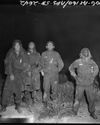
The Atlantic
The Light of a Man-Made Star
In 2003, the photographer Michael Light published 100 Suns, a collection of government photographs of nuclear-weapons tests conducted from 1945 to 1962.
1 min
August 2025

The Atlantic
It Has Pockets!
How Claire McCardell changed women's fashion
10 mins
August 2025

The Atlantic
Lamentations-A short story
It was March when I received the news that Harold had died in one of his caves.
23 mins
August 2025

The Atlantic
MY PERSONAL WAR ON PLASTIC
What happened when I tried to eliminate it from my family's life
10 mins
August 2025

The Atlantic
American Insomnia
Tossing and turning through our national sleep crisis
36 mins
August 2025
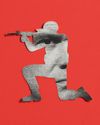
The Atlantic
THE WARRIOR MYTH
THE WARRIOR MYTH What Pete Hegseth doesn't understand about soldiers
8 mins
August 2025
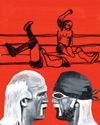
The Atlantic
The High Art of Pro Wrestling
Yes, it's fiction. So is Moby Dick.
9 mins
August 2025
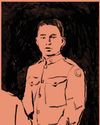
The Atlantic
The Expatriate
Joseph Kurihara had faith in America. It didn't have faith in him.
15 mins
August 2025

The Atlantic
How Toni Morrison Changed Publishing
At night, she worked on her novels. By day, as an editor at Random House, she championed a new generation of writers.
10 mins
August 2025
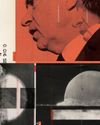
The Atlantic
The President's Weapon
Why does the power to launch nuclear weapons rest with a single American?
14 mins
August 2025

